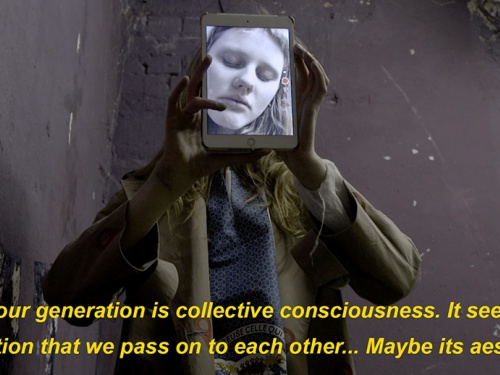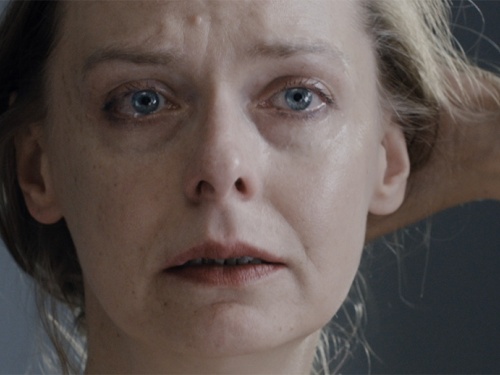On Chantal Akerman
Following the tragic death of filmmaker and artist Chantal Akerman, A Nos Amours' Adam Roberts reflects on her extraordinary life and work, ahead of the final screening in a two-year retrospective of her films. La folie Almayer is an adaptation of Joseph Conrad’s first novel Almayer's Folly, set in the late 19th century.
Chantal Akerman loved Joseph Conrad, and that’s not surprising. He was the writer that looked most unsparingly into the colonial heart of darkness. Akerman was perhaps, of all filmmakers born just after the war, the most sensible to the horror of it all: some may have analysed or looked more directly at the legacy and experiences of war and the Holocaust, but Akerman registered the reverberations, the traumatic aftermath, the backwash like no other. Akerman well understood how the contemporary world has been shaped by the pervasive after-effects of the horror.
Conrad’s Almayer’s Folly, set in Borneo, tells the story of a planter whose dreams of easy riches fail, leaving him to take comfort in opium amid the ruin of his splendid but absurd up-river home – his folly. Akerman is not about to let her colonial opportunist off so easily though, for opium is to numb the pain, and Akerman, daughter of a Holocaust survivor, did not believe in sedation.
The tragic news of Akerman’s death leaves us to contemplate La folie Almayer in a new, sombre light. When she was alive, there might yet have been another cinematic work of fiction. Indeed, she was writing a script for one. While she was alive, the film stood as another marker on the way; there was the expectation of another. Now, suddenly, it is a terminal work. There is a documentary still to come (No Home Movie, 2015), but in terms of a scripted, conceived and executed cinema film on 35mm film stock, this is it.
We may perhaps want now to think of the film as in some way characteristic ‘late Akerman’ – a notion of Adorno’s widely taken up, but questioned by Akerman in her film about Schubert’s last sonatas. As Alfred Brendel (the great pianist who plays and speaks so brilliantly in the film) points out, Schubert did not know when he composed the sonatas that they would be last works. The film asked us to think hard about the pitfalls of such sentimental retrospection.
And now we must look in retrospect at La folie Almayer. Might we incline to seeing the film as a comment on the condition of cinema – cinema perhaps as failed colonialist adventure in search of fool’s gold?
Akerman liked to shoot on film, but had lately given that up – she is credited as one of the producers of La folie Almayer and complained to me about the sheer horror of raising money for such expensive filmmaking. Indeed, her last work No Home Movie was shot on video—some of it on her Blackberry phone—such as the brilliantly expressive and resonant first shot. She loved working without needing a crew, being able to travel and shoot at will, without a budget spreadsheet. When she worked alone, she could produce a work like Là-bas, a daring, brilliantly conceived film that seems now like one of her absolute high points.
It is important to underline how interesting a two-year retrospective has been. For all of us who have been able to attend and think about the work, it has been the most remarkable privilege. The films we watched were made over a 40-year span. We took in them in at rate that seemed right. At the start we feared a loss of appetite or falling away of interest – but the reverse has been true. To see lesser-known films, and to see them away from the proximity and fanfare of the better-known work, revealed that conventional assessments of film are often faulty or inadequate. To see films in the company of others is to see them better and more clearly. To see films in the order that they were made has been often a delightful surprise.
To wallow in sentimental retrospect, or to coolly assess the body of work as a whole in necessary academic study, or to prophylactically stitch such dangerous and radical work as Akerman's safely into dusty obituary, ready to be filed in inaccessible archives, or to make use of her for purposes yet to be revealed is all very well and inevitable. But now, I am left simply with the horrible fact of Chantal’s absence. She was a towering spirit, an intelligence that cinema desperately needed—no, needs now—more than ever.
RIP Chantal Akerman 6th June 1950 – 5th October 2015 ■
La folie Almayer (Almayer's Folly) is screened on 22 October, the final screening in a two-year retrospective of Chantal Akerman's work presented by A Nos Amours' curators Adam Roberts and Joanna Hogg.
This article is posted in: Articles, Blog, Film
Tagged with: Chantal Akerman, La Folie Almayer, Adam Roberts, Feminism, A Nos Amours, Almayer's Folly, Joseph Conrad, Cinema, Filmmakers, Female Filmmakers, Directors, Director







